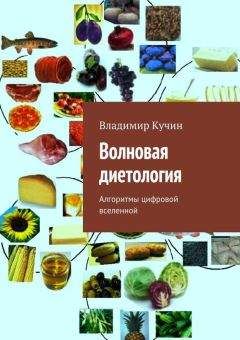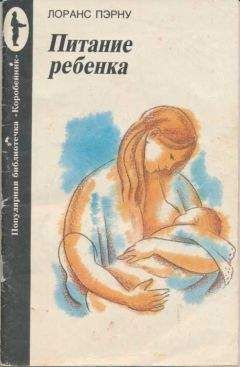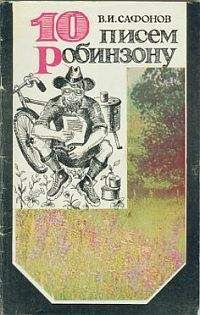Неизвестен Автор - Словарь американских идиом (8000 единиц)
Скачивание начинается... Если скачивание не началось автоматически, пожалуйста нажмите на эту ссылку.
Жалоба
Напишите нам, и мы в срочном порядке примем меры.
Описание книги "Словарь американских идиом (8000 единиц)"
Описание и краткое содержание "Словарь американских идиом (8000 единиц)" читать бесплатно онлайн.
[strike one's colors] See: HAUL DOWN ONE'S COLORS.
[strike one's fancy] <v. phr.> To please one's predilections; appeal to one. * /The red tie with the yellow dragon on it happened to strike my fancy, so I bought it./
[strike] or [hit a sour note] <v. phr.> To spoil the mood at a gathering by hearing some bad news. * /The news of Mr. Brown's sudden illness struck a sour note during our New Year's Eve party./ Compare: SPIT INTO THE WEDDING CAKE.
[strike out] <v.> 1. To destroy something that has been written or drawn by drawing a line or cross through it or by erasing it. * /John misspelled "corollary. " He struck it out and wrote it correctly./ 2. To begin to follow a new path or a course of action that you have never tried. * /The boy scouts struck out at daybreak over the mountain pass./ * /John quit his job and struck out on his own as a traveling salesman./ 3. To put (a batter) out of play by making him miss the ball three times; also: To be put out of play by missing the ball three times. * /The pitcher struck out three men in the game./ * /The batter struck out twice./ 4. To push out an arm suddenly in a hitting motion. * /The boxer saw his chance and struck out at his opponent's jaw./
[strike out at] <v. phr.> To attack someone verbally or physically. * /She was so angry that she struck out at him every occasion she got./
[strike the hour] <v. phr.> To mark or toll the hour (said of clocks or bells). * /We heard the church clock strike the hour of two./
[strike up] <v.> 1a. To start to sing or play. * /We were sitting around the camp fire. Someone struck up a song, and we all joined in./ * /The President took his place on the platform, and the band struck up the national anthem./ 1b. To give a signal to start (a band) playing. * /When the team ran on the field, the band director struck up the band./ 2. To bring about; begin; start. * /The policeman struck up a conversation with John while they were waiting for the bus./ * /It did not take Mary long to strike up acquaintances in her new school./
[strike while the iron is hot] See: MAKE HAY WHILE THE SUN SHINES.
[string] See: FIRST STRING, LATCH STRING, ON THE STRING or ON A STRING, PULL STRINGS, PURSE STRINGS, SHOE-STRING CATCH, TIED TO ONE'S MOTHER'S APRON STRINGS.
[string along] <v.>, <informal> 1. To deceive; fool; lead on dishonestly. * /Mary was stringing John along for years but she didn't mean to marry him./ * /George told the new boy that he must always call the teacher "Sir," but the new boy soon saw that George was stringing him along./ Compare: ON A STRING. 2. To follow someone's leadership; join his group. * /Those of you who want to learn about wild flowers, string along with Jake./
[string out] <v.> To make (something) extend over a great distance or a long stretch of time. * /The telephone poles were strung out along the road as far as we could see./ * /Mary and Ann did not have much to say but they did not want to go home. They strung out their gossip for a long time./
[string up] <v.>, <slang> To put a rope around the neck of a person and choke him to death; hang. * /The posse strung up the rustler without a trial./ Compare: NECKTIE PARTY.
[strings attached] <adv. phr.> With some special proviso or condition that is a handicap. * /John inherited a large fortune but with the string attached that he could not touch a penny of it before his 28th birthday./
[strip] See: DRAG STRIP.
[stripe] See: MIDFIELD STRIPE.
[stroke] See: AT A STROKE or AT ONE'S STROKE.
[stroke of luck] See: RUN OF LUCK.
[strong language] <n. phr.> Cursing; swearing. * /When Ned learned that he had been fired, he used some very strong language about his boss./
[strung out] <adj.>, <slang>, <colloquial> 1. Nervous, jittery, jumpy; generally ill because of drug use or withdrawal symptoms. * /The only explanation I can think of for Max's behavior is that he must be strung out./ 2. To suffer because of a lack of something previously accustomed to, such as the love and affection of someone. * /Sue is all strung out for Jim; they've just split up./ Compare: SPACED OUT.
[stuck on] <slang> Very much in love with; crazy about. * /Judy thinks she is very pretty and very smart. She is stuck on herself./ * /Lucy is stuck on the football captain./
[stuck-up] <adj.>, <informal> Acting as if other people are not as good as you are; conceited; snobbish. * /Mary is very stuck-up, and will not speak to the poor children in her class./
[stuck with] <adj. phr.> Left in a predicament; left having to take care of a problem caused by another. * /Our neighbors vanished without a trace and we got stuck with their cat and dog./
[study] See: BROWN STUDY.
[stuff] See: KNOW ONE'S WAY AROUND(2).
[stuff and nonsense] <n.> Foolish or empty writing or talk; nonsense. * /Fred told a long story about his adventures in Africa, but it was all stuff and nonsense./ Often used as an interjection. * /When Jane said she was too sick to go to school, her mother answered, "Stuff and nonsense! I know there's a test today."/
[stuff the ballot box] <v. phr.> To give more votes to a candidate in an election than there are people who actually voted for him. * /It is a crime to stuff the ballot box./ - [ballot-stuffing] <adj. phr.>
[stuffed shirt] <n. phr.> A pretentious bore; a pompous, empty person. * /I think that Howard is a terrible stuffed shirt with no sense of humor./
[stuffed up] <adj. phr.> Impeded; blocked. * /Our kitchen sink is all stuffed up so I have to call the plumber./
[stumble across] <v. phr.> To encounter a person or thing, mostly by accident. * /I gave up looking for my old hat when I accidentally stumbled across it in a dark corner of the closet./
[stump] See: TAKE THE STUMP or TAKE TO THE STUMP, UP A STUMP.
[style] See: CRAMP ONE'S STYLE, HIGH STYLE.
[subject to] <adj. phr.> 1. Under the government or control of; in the power of. * /The English colonies in America were subject to the English king./ * /The principal and the teachers of a school are subject to the school board./ 2. Likely to get or have; liable. * /John is in rather poor health and is subject to colds./ * /The western plains are subject to tornadoes./ 3. Depending on some change, happening, or need. * /The company and the union agreed that the workers' wages should be subject to changes in the cost of living./ * /Agreements made by the President with other countries are subject to the approval of the Senate./
[substance] See: IN SUBSTANCE.
[succeed] See: HOWLING SUCCESS, NOTHING SUCCEEDS LIKE SUCCESS.
[such and such] <pron.> Something whose name is not mentioned because it does not need to be mentioned. * /George's argument tries to prove such and such to be true, but it does not convince me./
[such-and-such] <adj. phr.> Being one whose name has been forgotten or whose name does not need to be mentioned. * /She told me to go to such-and-such a street and turn right./ * /Suppose, now, that we have such-and-such a group coming to the school, and we don't have enough chairs. What do we do then?/
[such as] <conj.> 1. Of a kind or amount shown or named; of a kind like. * /The explorer took only such men and things as he really needed into the jungle with him./ * /They felt such heat in the jungle as they had never felt before./ * /Many different pies were in the bakery such as apple, cherry, and blueberry pies./ 2. Of the average or ordinary kind; poor; humble. * /Such as the food was, there was plenty of it./ * /The room is not very nice, but such as it is, you may stay there for the night./
[such as it is] Just as it appears or is presented, not being any better or worse than most others of its kind; being average or mediocre. * /This pie, such as it is, is the best I can make./ * /Jane told her grandmother her grades, such as they were./
[such that] <conj.> Of a kind or amount that; so great or so little that; enough that. * /There was such a big line at me movie that we had to wait before we could get in./ * /Jimmy made such noise that his sister told him to be quiet./ * /Mother's answer was such that she didn't say yes and she didn't say no./
[sucker list] <n.>, <slang> A list of easily-fooled people, especially people who are easily persuaded to buy things or give money. * /The crook got hold of a sucker list and started out to sell his worthless stock./ * /Mr. Smith gets so many advertisements in his mail that he says he is on every sucker list in the country./
[suck in] <v.> 1. <informal> To pull in by taking a deep breath and tightening the muscles; flatten. * /"Suck in those stomachs," the gym teacher said./ 2. <slang> To make a fool of; cheat. * /The uneducated farmer was sucked in by a clever crook./
[sugar daddy] <n.>, <slang>, <semi-vulgar>, <avoidable> An older, well-to-do man, who gives money and gifts to a younger woman or girls usually in exchange for sexual favors. * /Betty Morgan got a mink coat from her sugar daddy./
[suit] See: BIRTHDAY SUIT, FOLLOW SUIT.
[suit to a T] See: TO A T.
[suit up] <v. phr.> To don a uniform or sports outfit. * /The veterans like to suit up for the Fourth of July parade./
[suit yourself] <v. phr.>, <informal> To do what one likes or prefers. * /"I don't care where you want to sleep," he said. "Suit yourself!"/
[sum total] <n.> The final amount; everything taken together; total. * /The sum total of expenses for the trip was $450./ * /Ten years was the sum total of John's education./
[sum up] <v.> To put something into a few words; shorten into a brief summary; summarize. * /The teacher summed up the lesson in three rules./ * /The mailman's job, in all kinds of weather, is summed up in the phrase "Deliver the mail."/
[sun] See: UNDER THE SUN.
[sunbelt] <n.>, <informal> A portion of the southern United States where the winter is very mild in comparison to other states. * /The Simpsons left Chicago for the sunbelt because of Jeff's rheumatism./
[Sunday] See: MONTH OF SUNDAYS.
[Sunday best] or [Sunday-go-to-meeting clothes] See: BEST BIB AND TUCKER.
[sunny-side up] <adj.> Fried on one side only. * /Barbara likes her eggs sunny-side up./
[supper] See: COVERED-DISH SUPPER or POTLUCK SUPPER.
[supply] See: IN SHORT SUPPLY.
[sure] See: FOR SURE, MAKE SURE, TO BE SURE.
[sure enough] <adv.> As expected. * /Charles was afraid he had done badly on the test, and sure enough, his grade was failing./ * /The children saw a familiar shape coming up the street and hoped it was their lost dog. When it came near, sure enough, it was Spot./ Compare: SURE THING(2).
[sure-enough] <adj.> Real; genuine. * /Rick found a sure-enough nickel./ * /Martha's uncle gave her a sure-enough pearl on a little gold chain./ * /Jane's uncle is a sure-enough cowboy./
[surefire] <adj.> Without fail; effective; bringing actual results. * /During a campaign the only surefire way to get the sympathy of the voters is to mingle with them in person./
[sure thing] 1. <n.>, <informal> Something sure to happen; something about which there is no doubt. * /It's no fun betting on a sure thing./ 2. <adv.> Of course; certainly * /Sure thing, I'll be glad to do it for you./ Compare: FOR SURE(2), SURE ENOUGH.
[surface] See: SCRATCH THE SURFACE.
[surprise] See: TAKE BY SURPRISE.
[survival of the fittest] <n. phr.> The staying alive or in action of the best prepared; often: idea that those living things best able to adjust to life survive and those unable to adjust die out. * /Life in the old West was often a case of survival of the fittest./ * /With changes in the world's climate, dinosaurs died but many smaller animals lived on. It was survival of the fittest./ * /On the 50-mile hike it was survival of the fittest; only 12 out of 25 Scouts finished./
[suspicion] See: ABOVE SUSPICION.
[swallow] See: LOOK LIKE THE CAT THAT ATE THE CANARY.
[swallow hook, line, and sinker] See: HOOK, LINE, AND SINKER.
[swallow one's pride] <v. phr.> To bring your pride under control; humble yourself. * /After Bill lost the race, he swallowed his pride and shook hands with the winner./ Compare: EAT ONE'S WORDS,
[swallow one's words] 1. To speak unclearly; fail to put enough breath into your words. * /Phyllis was hard to understand because she swallowed her words./ 2. See: EAT ONE'S WORDS.
[swallow up] <v. phr.> To do away with; absorb; engulf. * /My expenses are so great that they swallow up my modest salary./
[swan song] <n. phr.>, <literary> A farewell or last appearance. * /The famous soprano gave her swan song in La Traviata before she retired./
[SWAT team] <n.>, <informal> Police unit trained for especially hazardous or sensitive law-enforcement assignments; short for Special Weapons and Tactics. * /Joe made the SWAT team of the NYPD due to his athletic skills./
[swathe] See: CUT A SWATHE.
[swear by] <v.> 1. To use as the support or authority that what you are saying is truthful; take an oath upon. * /A witness swears by the Bible that he will tell the truth./ * /In ancient Greece a doctor swore by Apollo, the god of healing, that he would be a good doctor./ * /John swore by his honor he would return the bike./ 2. To have complete confidence in; be sure of; trust completely. * /When John has to go somewhere fast, he swears by his bike to get there./ * /We can be sure that Fred will come on time, since his friend Tom swears by him./
[swear in] or [swear into] <v.> To have a person swear or promise to do his duty as a member or an officer of an organization, government department, or similar group. - "Swear into" is used when the name of the group is given. * /Mary and Ann will be sworn into the club tonight./ * /Fred was sworn in as class president./ * /Many new men were sworn into the army last month./ * /At the inauguration, the Chief Justice of the Supreme Court swore in the new President./
[swear off] <v.>, <informal> To give up something you like or you have got in the habit of using by making a promise. * /Mary swore off candy until she lost ten pounds./ * /John has sworn off dessert for Lent./
[swear out] <v.> To get (a written order to do something) by swearing that a person has broken the law. * /The policeman swore out a warrant for the suspect's arrest./ * /The detectives swore out a search warrant./
[sweat] See: BY THE SWEAT OF ONE'S BROW.
[sweat blood] <v. phr.>, <slang> 1. To be very much worried. * /The engine of the airplane stopped, and the pilot sweated blood as he glided to a safe landing./ 2. To work very hard. * /Jim sweated blood to finish his composition on time./
[sweat out] <v.>, <informal> To wait anxiously; worry while waiting. * /Karl was sweating out the results of the college exams./ * /The search plane signaled that help was on the way. The men in the lifeboat just had to sweat it out./
Подписывайтесь на наши страницы в социальных сетях.
Будьте в курсе последних книжных новинок, комментируйте, обсуждайте. Мы ждём Вас!
Похожие книги на "Словарь американских идиом (8000 единиц)"
Книги похожие на "Словарь американских идиом (8000 единиц)" читать онлайн или скачать бесплатно полные версии.
Мы рекомендуем Вам зарегистрироваться либо войти на сайт под своим именем.
Отзывы о "Неизвестен Автор - Словарь американских идиом (8000 единиц)"
Отзывы читателей о книге "Словарь американских идиом (8000 единиц)", комментарии и мнения людей о произведении.



















